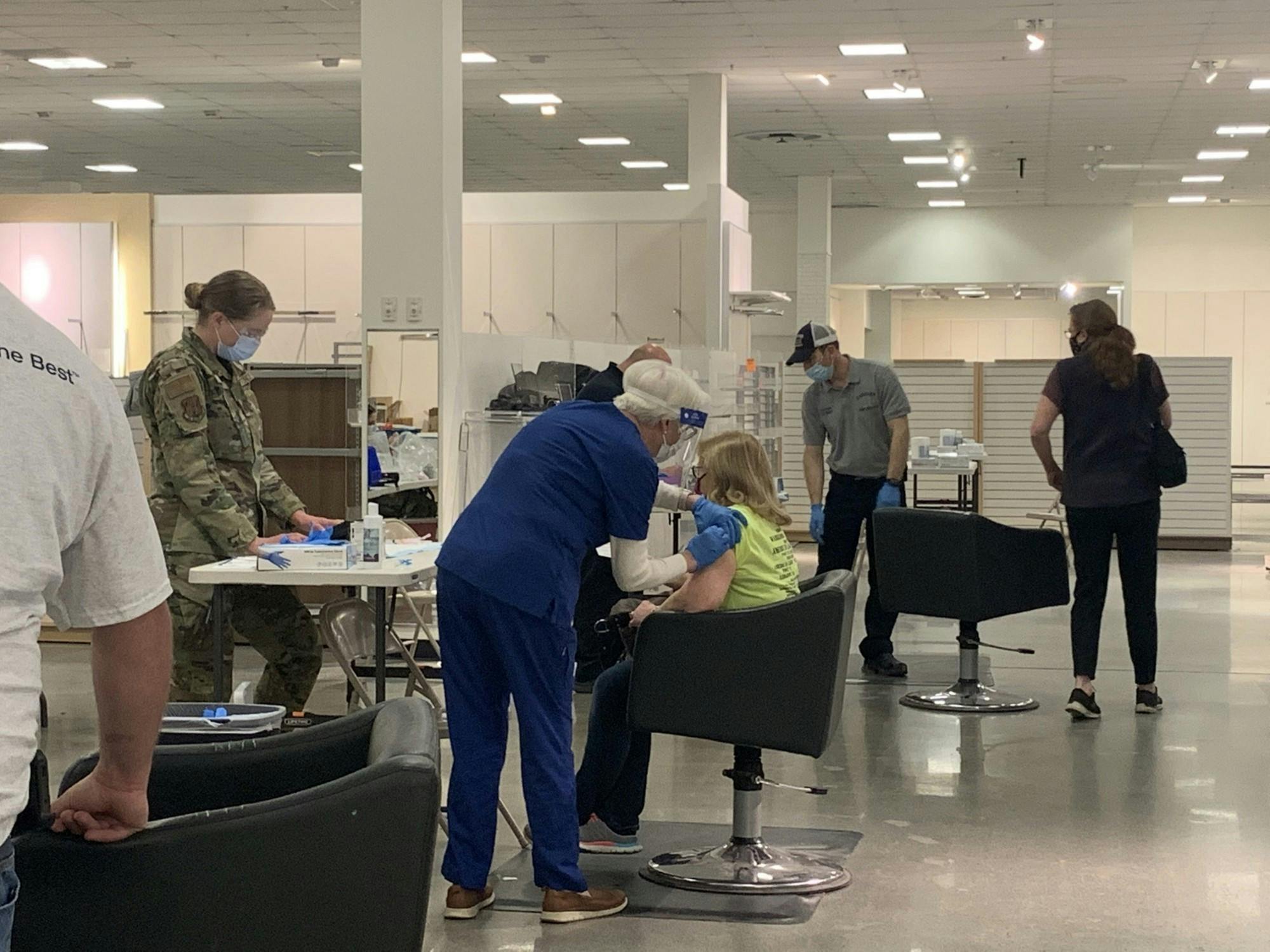Under federal guidance that requires federal contractors to comply with vaccine mandates, all full-time and part-time faculty and staff at Dartmouth, as well as anyone with a temporary appointment, will be required to submit proof of full vaccination against COVID-19 or obtain a medical or religious waiver by Dec. 8.
On Sept. 9, President Joe Biden signed Executive Order 14042, which requires federal contractors to mandate that their employees be fully vaccinated against COVID-19. The College has a legal obligation to ensure full employee adherence to the vaccination policy as it receives some funding from the federal government, according to College spokesperson Diana Lawrence.
The federal vaccine mandate comes after the College implemented its own COVID-19 vaccine mandate for Dartmouth staff. On Jun. 23, the College announced that all faculty and staff who access College facilities had to submit proof of COVID-19 vaccination by Sept. 1.
Unlike Dartmouth’s original rules, the federal mandate will also apply to employees who have been approved for fully remote work, interim Provost David Kotz announced in Oct. 13’s Community Conversations broadcast. On Monday, chief human resources officer Scot Bemis sent an email to Dartmouth employees asking for proof of vaccination or medical or religious exemptions.
Student employees will follow student vaccination policies, Lawrence wrote in an email statement, meaning that all students enrolled in in-person classes are required to show proof of vaccination or a valid waiver.
The Safer Federal Workforce Task Force, which is in charge of implementing Biden’s executive order, states that “employees must be fully vaccinated by the first day of the period of performance on a newly awarded covered contract,” suggesting that non-compliant workers may not have their contracts renewed.
The exact processes for non-compliant employees after Dec. 8 are still under consideration by the College’s COVID-19 response leadership, Lawrence wrote.
Lawrence wrote that the College will be reaching out to employees who have not submitted documentation of full vaccination or obtained an exemption. The validity of exemption requests will be evaluated by the Office of Institutional Diversity and Equity, according to Lawrence. She added that medical exemptions must come from a health care provider, while employees will write and submit their own religious exemption requests. She did not elaborate on what guidelines the office will use to determine if a request is valid.
Local 560 branch of the Service Employees International Union president Chris Peck said that the union will attempt to represent every worker’s interests, including those who face consequences for non-compliance with the mandate. However, he added that it is still uncertain whether the union will help non-compliant workers obtain legal aid, as the board of the union has to vote on the matter.
“Some board members probably wouldn’t [vote to help these workers find legal aid], as they had a choice to get the shot and chose not to,” Peck said.
Peck noted that based on discussions with attorneys, he predicts that non-compliant employees are unlikely to succeed in a court case.
“When we file a grievance, it doesn’t necessarily mean we’re going to be able to save somebody… it’s just about going through a process to make sure they are legally represented and are treated fairly,” he said.
Peck said that he has been advising workers who strongly resist vaccination to obtain a medical or religious waiver, though he is uncertain how difficult it is to obtain one.
According to Lawrence, 3,854 faculty and staff members have already submitted documentation of their full vaccination status, which contributes to a total current community vaccination rate of 92 percent. The community vaccination rate includes all undergraduate and graduate students, faculty and staff.
Senior programmer and analyst for the College’s advancement division Stew Stryker said he is “generally supportive” of the federal mandate.
“I think everyone is looking forward to getting back to business as usual … and to me this is the only way to move forward,” Stryker said. “That way, we can be free again, we can relax our standards and get back to a more casual way of life.”
Stryker said he believes that even if some staff members are “not necessarily supportive” of the mandate, the majority of them will abide by the mandate in order to keep their jobs.
Peck said he “strongly [recommends]” that every worker get vaccinated. Around 90% of service staff are in the union, he noted, but the roughly 350 union members are less than 10% of the more than 4,000 staff and faculty on campus.
He said that he receives an email from the College when a union employee receives an exemption, but is unaware of how many union employees at Dartmouth are still unvaccinated.
Peck said that the union has been helping members obtain a list of locations administering their preferred vaccine if they require assistance.
The federal vaccine mandate is one of several vaccine mandates the Biden administration is rolling out. The White House also announced on Sept. 9 that all federal workers must be vaccinated or obtain an exemption by Nov. 22.
Additionally, all workers in companies with more than 100 employees must be fully vaccinated or conduct weekly testing for the virus. The deadline for these workers to be fully vaccinated has not been announced.




